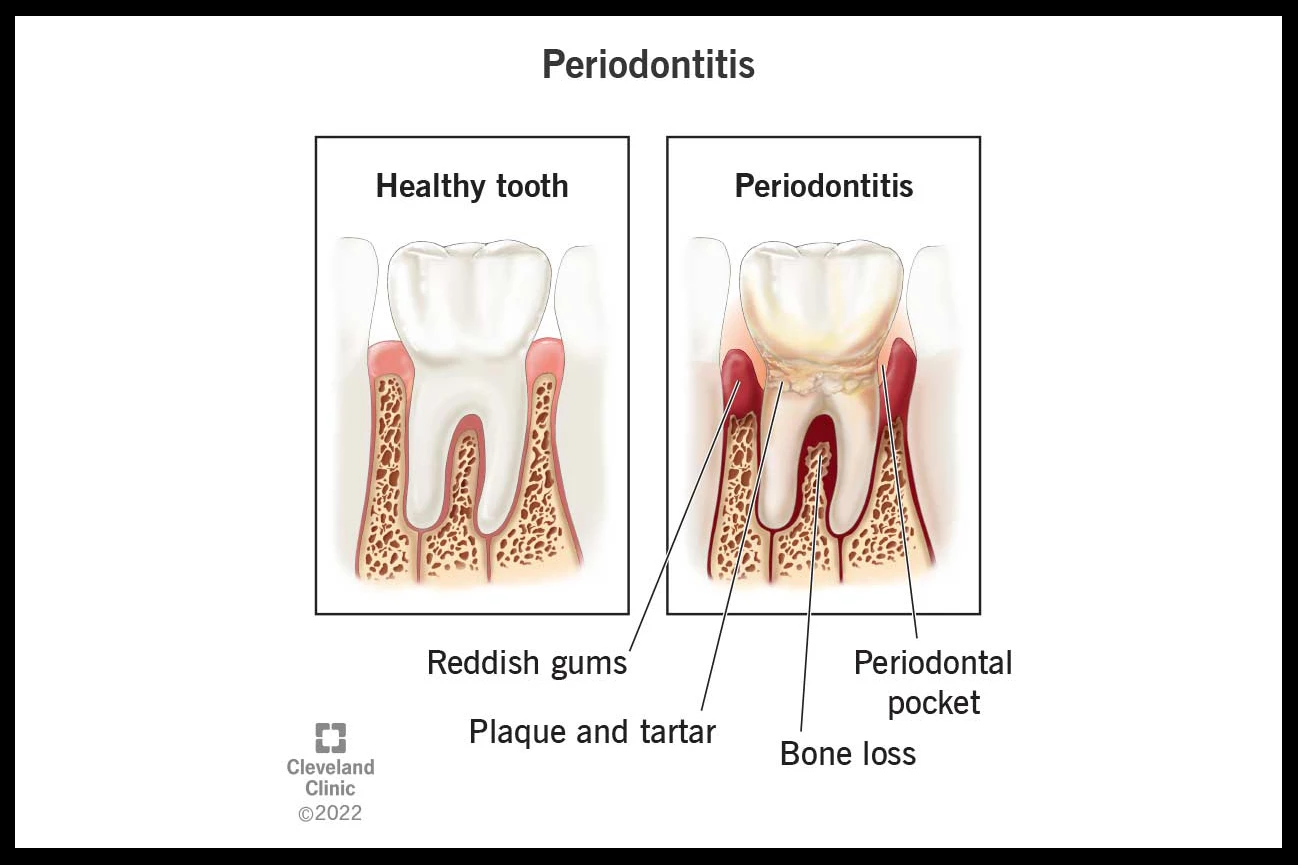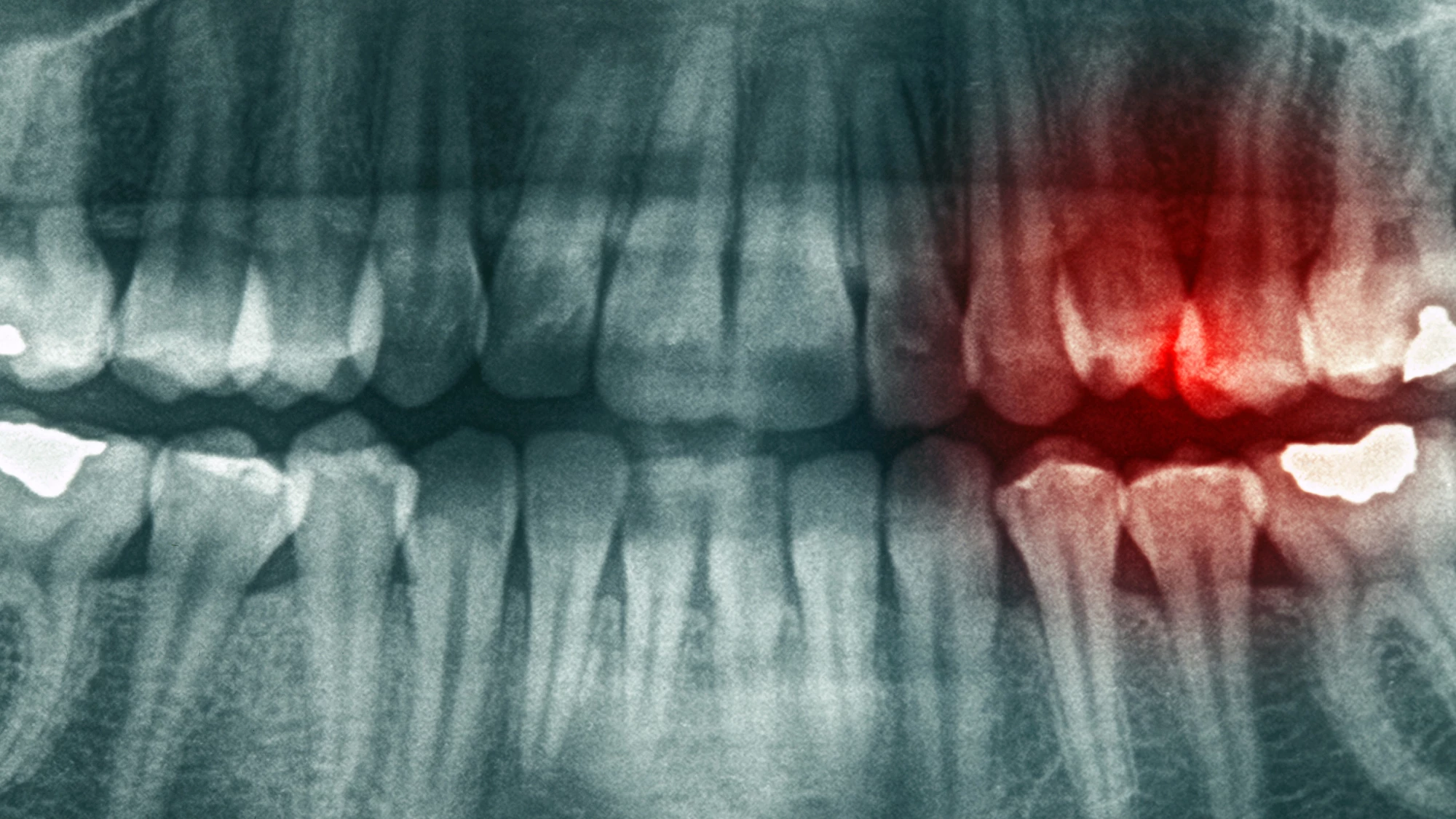According to a new study, combining exercise with omega-3 supplements reduced inflammation and, thereby, the severity of a chronic tooth root infection. It suggests a relatively simple means of controlling these infections, which can result in bone and tooth loss.
Apical periodontitis (AP) occurs when bacteria reach the tip, or apex, of a tooth root and cause inflammation of the surrounding tissues. It can be caused by tooth decay, trauma, or following dental procedures. If left untreated, it can lead to the destruction and loss of underlying bone and eventual tooth loss.
In a new study led by the São Paulo State University (UNESP), Brazil, researchers studied the effectiveness of using a combination of physical exercise, known to enhance the body’s immune response, and supplements of omega-3 polyunsaturated fatty acids to treat AP.
“It’s a condition that patients may not even know they have because of its chronic nature, but which can evolve and lead to bone destruction and tooth mobility,” said corresponding author Rogério de Castilho Jacinto, a professor at UNESP’s Araçatuba School of Dentistry (FOA-UNESP).
We at New Atlas regularly cover research into the health benefits of omega-3s. Previous studies have shown that physical exercise reduces bone loss in rats with periodontal disease, a chronic inflammation of tooth-adjacent tissues, and reduces inflammatory chemicals called cytokines in mice. However, there are no studies analyzing the effects of physical activity on PA. So, that’s what the researchers set out to do. They threw omega-3 supplements into the mix for good measure.

The researchers induced AP in 30 rats and divided them into three groups. Two groups undertook moderate physical exercise, consisting of swimming for an hour a day, five days a week, for six weeks. In addition to swimming, one of those groups received an omega-3 supplementation once a day for 60 days. The third group served as a control and neither swam nor received omega-3 supplements.
The rats’ immune responses were analyzed by measuring the inflammatory markers tumor necrosis factor alpha (TNF-⍺) and interleukin-17 (IL-17), both pro-inflammatory cytokines produced by activated immune cells. The researchers observed that the rats with the lowest levels of inflammatory markers were those that swam and received the supplements. Furthermore, that group also had a significantly lower number of osteoclasts, which are the cells responsible for bone loss in pathological conditions like AP. When the researchers took CT scans of the rats’ jaws, they found that the animals who swam and received supplements had the least alveolar bone loss of the three groups. The alveolar bone is the specialized bone in the jaw that surrounds and supports the roots of the teeth.
“In rats, physical exercise alone brought about a systemic improvement, regulating the local immune response,” said lead author Ana Paula Fernandes Ribeiro, PhD, a researcher from FOA-UNESP. “In addition, when combined with [omega-3] supplementation, it further reduced the destructive condition caused by endodontic pathology.”
What remains now is to see if the same effect can be produced in humans.
“To know if the same would be true for humans, we’d need a clinical study with a significant number of patients,” Jacinto said. “However, in addition to the many proven benefits of physical exercise and omega-3 consumption, this is yet another important piece of evidence.”
The study was published in the journal Scientific Reports.
Source: Agência FAPESP





